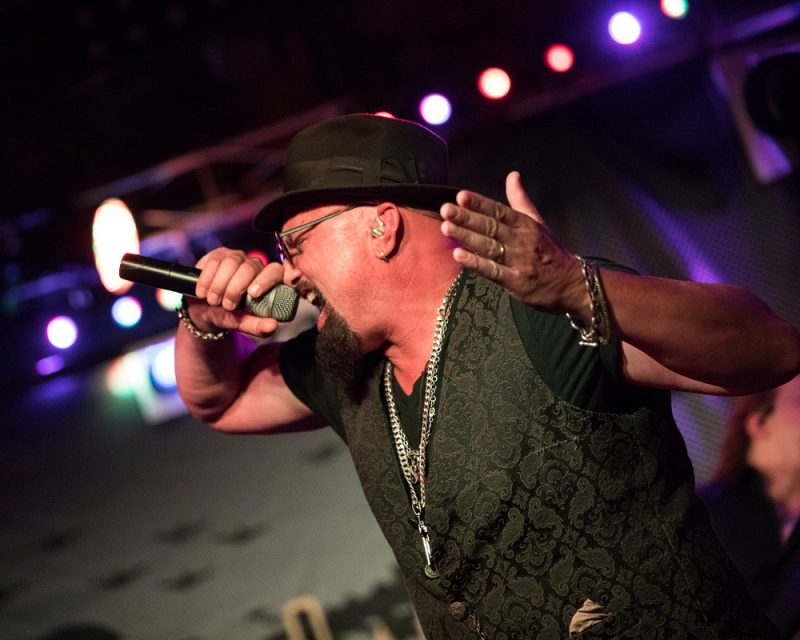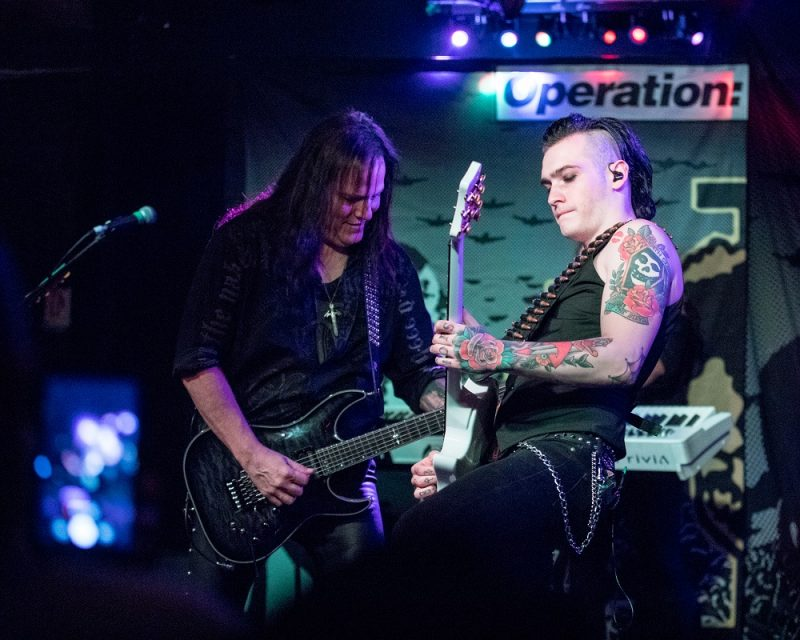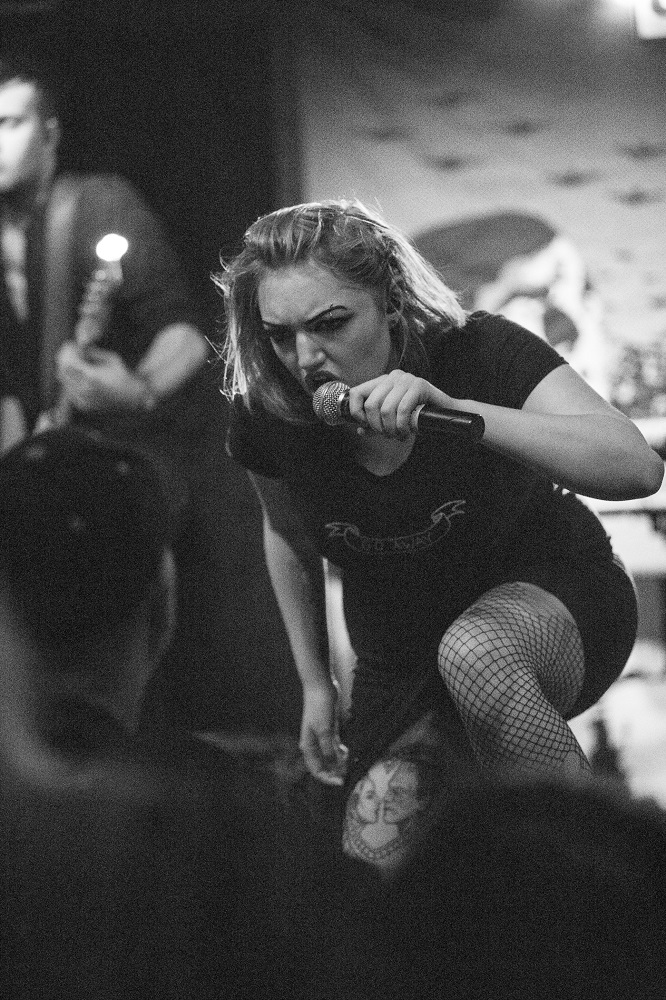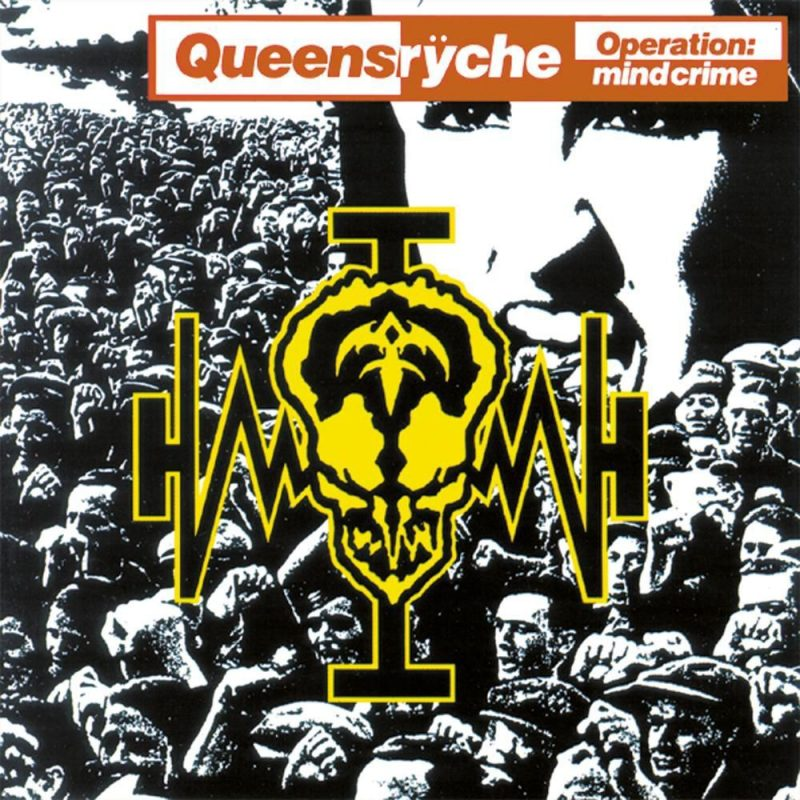Interview: Geoff Tate on creating Operation: Mindcrime & performing it, 30 years later
(Note: This interview was originally published on August 27, 2018, on Northwest Music Scene‘s website. NWMS has gone dormant, so I’m adding it to my own website).
One of the most ambitious heavy metal concept albums to be released marks its 30th anniversary this year. Take Queensryche’s Operation: Mindcrime for a spin and it sounds as relevant now as it did when it was released in May of 1988. For those who may not be familiar, Operation: Mindcrime shares the story of Nikki, a young man trying to kick a drug habit, who becomes involved with a revolutionary group focused on assassinating political leaders of what it deems to be a corrupt society. It’s a stellar recording in every way, from creative concept to songwriting, arrangement, vocals, and production.
Operation: Mindcrime received hefty praise from music critics, and fans snapped up albums in massive numbers. The song, “I Don’t Believe in Love” was nominated for a Grammy in the Best Metal Performance category (“One” by Metallica won that year). Operation: Mindcrime reached Number 50 on Billboard Top 200 chart, and the British metal magazine Kerrang! listed it as #34 on its 100 Greatest Heavy Metal Albums of All Time. It was #67 on Rolling Stone’s list of Greatest Metal Albums of All Time.
It’s a hefty album and demanding to perform, especially in its entirety. Yet, that’s exactly what former Queensryche vocalist Geoff Tate has been doing since the beginning of the year, crisscrossing the US with his band (guitarists Kieran Robertson and Scott Moulton, bassist Jack Ross, drummer Josh Watts, and Bruno Sa on keyboards), and hitting more than a dozen countries along the way. Geoff’s tour wraps up this Wednesday (August 29th) at The Neptune Theatre in Seattle, with his daughter Emily’s band, Till Death Do Us Part, and popular local band, Syztem7, opening.
Geoff chatted with me from the road about the album’s inception, the writing and recording process, and what it means to perform it now, three decades later with his own band, and his daughter Emily stepping into the role of Sister Mary.
NWMS: YOU’VE BEEN PERFORMING OPERATION: MINDCRIME ON TOUR FOR A NUMBER OF MONTHS NOW. HOW’S IT GOING?
GT: The tour’s been fantastic. We’ve been touring almost constantly since January, and we end, of course, in Seattle. It’s our last date. There are some other dates I’m doing in Europe in November and December, but they’re kind of a smattering of the last of the Operation: Mindcrime shows – places we missed when we went through Europe the last time. It’s been a fantastic year of touring. It’s taken us to – I should know how many countries we’ve visited – but I think it’s something like fourteen countries on this tour.
NWMS: HOW DID THE IDEA OF OPERATION: MINDCRIME COME ABOUT AS A CONCEPT ALBUM?
GT: I grew up listening to, I guess what we would call “progressive rock” music now, bands like Pink Floyd, Genesis, and Yes. Bands that made “story” albums really stood out for me. I sort of envisioned doing something like that when Queensryche got together. If you look at our first two albums, you can see that we were really experimenting with semantic writing rather than individual song ideas. The albums sort of took on a theme. So, we were already kind of moving in that direction. We just didn’t have a full concept story.
That finally happened after the Rage for Order tour. I stayed back in Montreal with some friends and was living there and frequenting a drinking establishment that was also a local for a group of people who, unbeknownst to me at the time, were involved in some pretty heavy – how can I describe it – they were into kidnapping, extortion, bank robbery (laughs). They were a group that was trying to take the province of Quebec back out of the union of Canada. They were a political group, and they were some pretty bad people. I didn’t know any of this at the time because the people I was hanging out with knew these people and it was a “friends of friends” kind of thing. Some of these characters in the bar became, I guess, characterizations of the story I was working on at the time, which became Operation: Mindcrime.
I found that the situation I was involved in at the time really became sort of the back story of the story I was working on, which was kind of interesting how that all happened. One night, after eating at the bar, I was on my way home and needed to stop at the corner grocery store, and when I did, I noticed there was a Catholic church across the street that had its doors open and all this beautiful music was coming out of the church. Being curious, I walked over and went in. A choir was just finishing their nightly rehearsal. It was snowing outside; wintertime and all this steam was coming out of the church, and there were candles lit everywhere. So, I’m sitting down in one of the benches there, just kind of checking out the whole atmosphere, and I swear, like a hammer to the side of the head, the whole story that I’d been toying with for weeks just cemented in my head. I grabbed my notebook, and I started writing. I didn’t stop writing for, like, a week.
I finished the whole story outline, started working on the music and writing some songs for the album I was doing in my head, and by springtime, March, our guitar player Michael (Wilton) was getting married, so I flew home to be in the wedding. At the bachelor party, I sprung this idea to the rest of the band about Operation: Mindcrime as a story, a concept, saying “these are the characters and here’s some of the music I’ve written already, and what do you think?” They all loved the idea so after Michael’s honeymoon we all began earnestly adding to the record and working on it, and by the end of the year, we had it finished and were getting ready to release it. It was one of those kinds of projects that started snowballing. It started rolling and rolling and rolling, and pretty soon, it was bigger than all of us.
NWMS: WHAT WAS THE FIRST SONG YOU COMPLETED?
GT: It was the title track, Operation: Mindcrime.
NWMS: WHAT WAS THE FINAL SONG YOU WROTE?
GT: The last one is the one that took the longest, and that was Suite Sister Mary. It was quite an epic song for us at the time, and we were really trying to write a big piece; something that was really a showcase for the album. We enlisted the efforts of Michael Kamen to write on it with us, and he provided some amazing orchestral music and choir recording that we used for the song that really helped make it into the centerpiece that it became.
NWMS: AT WHAT POINT DURING THE WRITING AND RECORDING PROCESS DID YOU GUYS LOOK AT EACH OTHER AND SAY, “I THINK WE’VE GOT SOMETHING REALLY AWESOME?”
GT: I don’t think there was ever like a point that that happened. When you’re working on a record, you get into the spirit of it. You get into the Zen of it all, the creation of it. All these ideas are flooding in, and I think probably the most challenging thing is just keeping some sort of cohesiveness going on, because there’s all these ideas that are flooding through your head and you have to weed out which ones are going to be best for the project. I think when we finished mixing (we were in Amsterdam), Chris DeGarmo and I, who were the main writers on the project, we felt confident in the record. We absolutely loved it, and that was the thing that mattered most to us. It still does. Do we love the record? Does it make us feel like we’ve done something here? And we definitely had that feeling.
NWMS: SISTER MARY IS SUCH A POWERFUL AND PIVOTAL ROLE. HOW DID YOU COME TO SELECT PAMELA MOORE TO SING THIS ROLE?
GT: I had the idea of the female character being the opposite of the main male character, Nikki. The character played so heavily in the lyrical content of the story. Funnily enough, the inspiration for the character came from my previous tour that I did. I was at a disco in; I think it was Budapest. I’m sitting in this disco and it’s probably four in the morning and the place is just packed. This electronic dance music is going and it’s just throbbing. I’m looking around and taking notes always, and there’s a woman who’s, I’m guessing, in her early 30’s, and she’s dressed as a nun. She could have been a nun, for all I know. She looked realistically like a nun. She was dancing in slow motion, in direct contrast to this pulsing, throbbing music, and she had the saddest look on her face. She’s clutching a teddy bear in her arms like a baby that she had lost. I’d written the whole description down in my notebook. Months later, I added it to my visual of what Mary was like; she was this tragic character.
So, to further paint the picture, we needed a tragic character with a voice that seemed to match that, a voice that sounded like it has lived a hard life, a voice that was very emotional and expressive, and Pamela Moore came to mind. She’s a local singer from Seattle, a young lady we knew from the scene. Every time I’d ever seen her sing live, I was always impressed by the tonality in the sound of her voice. It’s really special. So, we just called her up out of the blue and said, “Hi, Pamela. We’re in Montreal right now, making a record, and we’d like to have you come sing on it if you can find the time.” She said, “Well, send me the track and let me see if it’s something I can do.” We sent it to her and she got back to us after she got it and said, “Yeah, I think I can probably do this.” She rearranged her schedule. We flew her out to Montreal in the middle of winter, snow everywhere, and she came up to the mountain studio where we were recording and just nailed it. She did a fantastic job.
NWMS: YOUR DAUGHTER EMILY STEPPED INTO THE ROLE OF SISTER MARY ON THIS TOUR. WHAT WAS IT LIKE THE FIRST TIME SHE JOINED YOU ON STAGE TO SING THIS PIVOTAL ROLE?
GT: Oh, wow. It was something very special. Emily has an amazing band, Till Death Do Us Part. They’ve been opening up for us this last year. They have their first CD out and it’s fantastic. I had to ask her to do it (sing Sister Mary). She was very hesitant about it at first. She’s grown up listening to the song and grown up watching Pamela sing it on tour. We’ve had a couple of different guest vocalists sing that part, including Maria Brink from In This Moment. Emily has grown up watching these really great singers sing this song and was a bit hesitant because it’s a big part. It’s very meaningful to a lot of people who love the album and she wanted to make sure she did a good job. I said, “Come to rehearsal and we’ll rehearse it a lot and you see how you feel.” After one rehearsal, I was convinced that she could definitely do it. She walked out the first night and nailed it. She’s a good singer. Since then, she’s taken it, perfected it in her own way, and made it her own thing, which I encourage. I like people to take my music and give it their expression, put themselves into it. I think that makes it very special. She’s done a great job with it and actually enjoys singing with me on that song every night. We have a good time doing it.
NWMS: WHAT’S BEEN THE MOST MEMORABLE MOMENT SO FAR, PERFORMING THIS ALBUM ON TOUR WITH YOUR OWN BAND?
GT: Every night is so different and memorable, and that’s really a lot to do with the audience. An audience can really dictate how good the show is. We perform to a certain level, definitely, every night. We’re very consistent. But there are audiences that push you over the top and they encourage you so much, there’s this energy exchange that happens, where you find yourself, as a performer, going above and beyond what you normal would do or could do. It’s really about the audience and how receptive, how open they are, and how supportive they are. I hate to say that, in a sense, but audiences really make the production happen.
NWMS: OPERATION: MINDCRIME IS A DEMANDING ALBUM TO PERFORM LIVE, NIGHT AFTER NIGHT, WITH LOADS OF TRAVELING IN BETWEEN. HOW DO YOU MAINTAIN YOUR VOCAL STRENGTH?
GT: I’m pretty blessed with a very strong voice. I’ve only missed five shows in my whole career. That’s pretty good, when you think about it. You go to work and only miss 5 days of work (laughs). I feel pretty good about that. For me, it’s about keeping going. My band sometimes complains because I don’t want to take days off. I want to keep playing every night and that keeps us sharp. It keeps us focused. If you have, like, two days off, you get lazy, in a sense. I like to keep the tour moving and keep everybody in the concert mindset. I find that it makes for better shows.
NWMS: DO YOU STILL GET CHILLS WHEN YOU SING A SONG LIKE, SAY, “I DON’T BELIEVE IN LOVE,” AND EVERY SINGLE VOICE IN THE CROWD IS SINGING ALONG WITH YOU?
GT: That’s a great feeling, yeah. Sometimes, I wonder about those particular lyrics (laughs). The lyrics are from a story. The character in the story is very disillusioned with his lot in life and his experiences. I, myself, very much believe in love. A lot of times, I think about and laugh to myself, and get a little worried, because I know the power of an audience. I know the power of suggestion, and you can feel it and it kind of worries me when you have thousands of people all shouting, “I don’t believe in love.” Personally, I think love is incredibly important.
NWMS: TELL US ABOUT THE NEW ALBUMS YOU HAVE OUT:
GT: I have three (The Key, Resurrection, A New Reality). For some reason, I got it into my head several years ago, that it would be cool to write a story and tell the story in three acts and make each act an album. Well, three years later and a good majority of my time over those three years were spent writing and recording these three albums. They’re very complex, very arty, quite complex in a lot of the musical arrangements. But, I think it’s something that people who are prone to artistic, long-winded albums will find something very interested in these three albums.
NWMS: ARE YOU WRITING NOW?
GT: I’m always working on stuff. I really am focused on touring this year. Next year, I have something interesting happening that I’ve never done before. I’m touring as a special guest for a wonderful band out of Germany called Avantasia. They create, funnily enough, big, elaborate concept albums, too. I sang on their latest album, which comes out soon. They’re starting up their tour in March, so I’m a member of the Avantasia touring group next year. I’m looking forward to it because it sounds quite fun and I get along well with the whole group. It’s quite an artistic situation to be involved in, and I’m looking forward to it.
Geoff Tate’s 30th Anniversary of Operation: Mindcrime Tour wraps up in Seattle on Wednesday, August 29th at The Neptune Theatre (911 Pine St, Seattle 98101). Tickets are available here.
Wine lovers, join Geoff at Noon on Wednesday, August 29th at Whole Foods in Kirkland (The Village at Totem Lake, 12501 120th Ave NE). Geoff will chat about wine and sign bottles of his Insania label wine. Find more information here.
Connect with Geoff:
Facebook:





Recent Comments